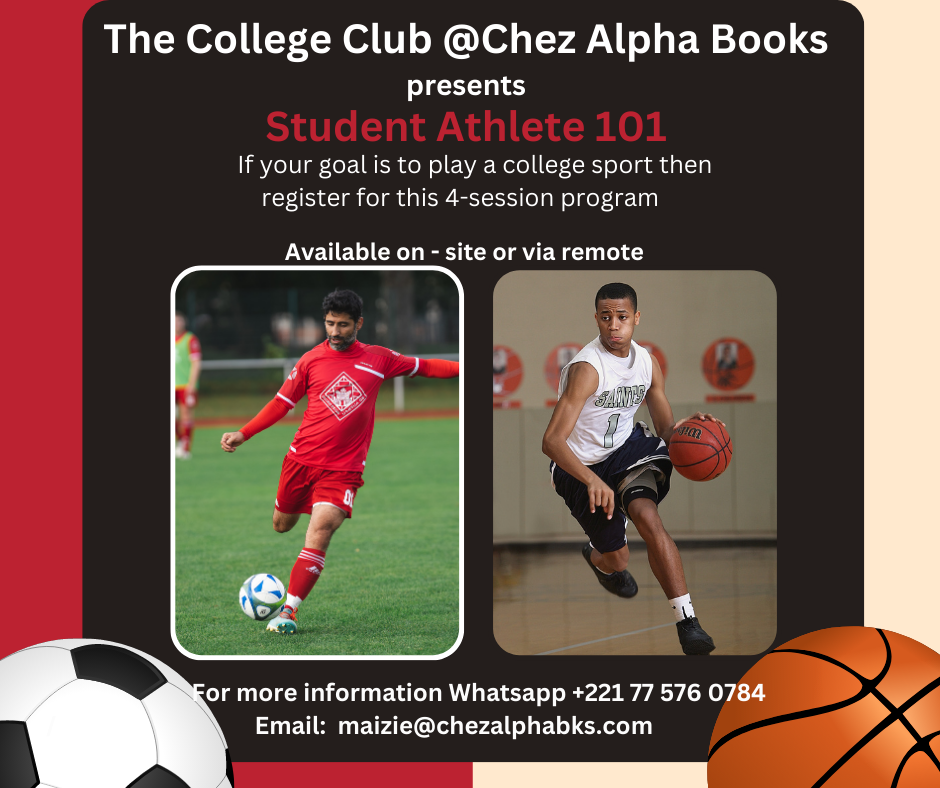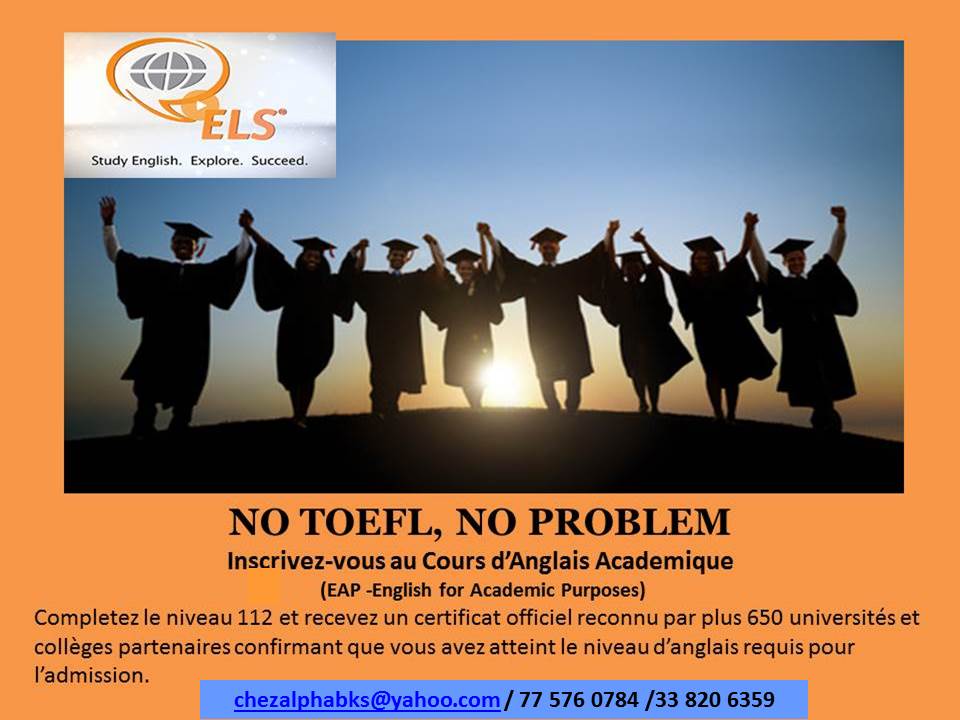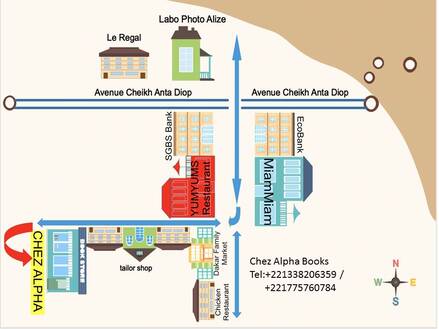Shorten Their Time to Degree With Summer School by F.J. Talley

We often look at summer school as a way for students to make up after failing a course, or if they’re otherwise behind. But there are other good reasons to take summer classes, such as a way to graduate early!
Graduating on Time:
For many universities, students need 120 semester credits to graduate on time. This translates to 15 credits per semester for 8 semesters for students who want to graduate in exactly four years. So far, so good. Sometimes this can be tough, especially when students take a really tough course load during a semester. On the other hand, some may overload with 18 credits during a semester when the courses align just the right way. Overloading carries some risk, but enrolling in summer school to graduate on time—or early—carries far less risk. Summer school offers students the ability to maximize their time.
Graduating Ahead of Schedule:
Summer school can also help students by accelerating their progress toward graduation. By completing prerequisite courses or electives during the summer, they can free up space in their schedules for more advanced coursework during the regular academic year. Other students take really tough courses during summer school so they can focus only on that course. One of my former students took her required math course in the summer and said it was the best thing she’d ever done.
It’s Often More Intense:
The condensed nature of summer school courses provides a more intensive learning experience. Students have fewer distractions and a shorter time frame in summer. This encourages them to become immersed in their studies early, often leading to greater focus and academic achievement. Summer schools classes are also often smaller, which can make it easier for faculty to help students who need their assistance. Students often tell me that they retain what they’ve learned in summer school classes more easily because of how intense they are. And the more credits they earn during the summer, the earlier they can graduate.
It May Cost Less:
Summer school can help students earn their degrees earlier, but it’s important to compare summer tuition costs to the regular semester. Students and families should also consider how taking summer classes may impact their financial aid. The last thing they want to do is to lose some financial aid eligibility during a regular semester because of summer classes. But if that is a danger, you might consider paying for summer school out of pocket, if that’s possible.
What To Do While in High School:
High school students can work on graduating from college early, too. Ideally, planning for this should ideally start early in high school, long before they set foot on a college campus.
High school students can take advantage of Advanced Placement (AP) courses, International Baccalaureate (IB) programs, and dual enrollment opportunities to earn college credits while still in high school. While AP courses get a lot of attention in rankings of high school rigor, they’re only the most well-known way to earn college credits while still in high school.
What’s Happening at Their Community College?
Dual enrollment programs allow high school students to enroll in college courses while simultaneously completing their high school requirements. By participating in these programs, students can earn both high school and college credits, which reduces the time and cost of earning a college degree. Examine the policies of your local community college. Does it allow students with a certain grade point average to enroll in college courses during the summer? If so, that’s an excellent way to earn early college credits, and to learn how college classes operate. For example, entering college students are often stunned by the amount of work they’re expected to do outside of class. If they learn this during summer school, they’ll be far better prepared when they enroll in college full-time.
Other Options:
Both high school and college students can also pursue credit-by-exam programs, such as the College-Level Examination Program CLEP, and the DSST (DANTES Subject Standardized Tests). These offer students the chance to earn college credits through standardized exams. Students may be able to bypass some introductory college courses if they earn high enough scores on these tests. Check with their college of choice to see which CLEP or DANTES scores are accepted.
Some universities also offer some accelerated degree options. My daughter’s university offered a three-year degree option for several majors, which, not surprisingly, involves at least two complete summer school sessions. While many students want to (and often need to) use the summer for earning money for college, they may still be able to take a summer school class or two.
Students have options when it comes to completing their degrees on time, or even early if they take the proper steps. And given the cost of a college degree, it makes sense to consider ways to reduce that financial burden.
https://www.linkedin.com/pulse/shorten-time-degree-summer-school-f-j-talley-kwuge/?trackingId=%2FEEbi%2Bs%2FSAuzM84hcYD%2Brw%3D%3D
Graduating on Time:
For many universities, students need 120 semester credits to graduate on time. This translates to 15 credits per semester for 8 semesters for students who want to graduate in exactly four years. So far, so good. Sometimes this can be tough, especially when students take a really tough course load during a semester. On the other hand, some may overload with 18 credits during a semester when the courses align just the right way. Overloading carries some risk, but enrolling in summer school to graduate on time—or early—carries far less risk. Summer school offers students the ability to maximize their time.
Graduating Ahead of Schedule:
Summer school can also help students by accelerating their progress toward graduation. By completing prerequisite courses or electives during the summer, they can free up space in their schedules for more advanced coursework during the regular academic year. Other students take really tough courses during summer school so they can focus only on that course. One of my former students took her required math course in the summer and said it was the best thing she’d ever done.
It’s Often More Intense:
The condensed nature of summer school courses provides a more intensive learning experience. Students have fewer distractions and a shorter time frame in summer. This encourages them to become immersed in their studies early, often leading to greater focus and academic achievement. Summer schools classes are also often smaller, which can make it easier for faculty to help students who need their assistance. Students often tell me that they retain what they’ve learned in summer school classes more easily because of how intense they are. And the more credits they earn during the summer, the earlier they can graduate.
It May Cost Less:
Summer school can help students earn their degrees earlier, but it’s important to compare summer tuition costs to the regular semester. Students and families should also consider how taking summer classes may impact their financial aid. The last thing they want to do is to lose some financial aid eligibility during a regular semester because of summer classes. But if that is a danger, you might consider paying for summer school out of pocket, if that’s possible.
What To Do While in High School:
High school students can work on graduating from college early, too. Ideally, planning for this should ideally start early in high school, long before they set foot on a college campus.
High school students can take advantage of Advanced Placement (AP) courses, International Baccalaureate (IB) programs, and dual enrollment opportunities to earn college credits while still in high school. While AP courses get a lot of attention in rankings of high school rigor, they’re only the most well-known way to earn college credits while still in high school.
What’s Happening at Their Community College?
Dual enrollment programs allow high school students to enroll in college courses while simultaneously completing their high school requirements. By participating in these programs, students can earn both high school and college credits, which reduces the time and cost of earning a college degree. Examine the policies of your local community college. Does it allow students with a certain grade point average to enroll in college courses during the summer? If so, that’s an excellent way to earn early college credits, and to learn how college classes operate. For example, entering college students are often stunned by the amount of work they’re expected to do outside of class. If they learn this during summer school, they’ll be far better prepared when they enroll in college full-time.
Other Options:
Both high school and college students can also pursue credit-by-exam programs, such as the College-Level Examination Program CLEP, and the DSST (DANTES Subject Standardized Tests). These offer students the chance to earn college credits through standardized exams. Students may be able to bypass some introductory college courses if they earn high enough scores on these tests. Check with their college of choice to see which CLEP or DANTES scores are accepted.
Some universities also offer some accelerated degree options. My daughter’s university offered a three-year degree option for several majors, which, not surprisingly, involves at least two complete summer school sessions. While many students want to (and often need to) use the summer for earning money for college, they may still be able to take a summer school class or two.
Students have options when it comes to completing their degrees on time, or even early if they take the proper steps. And given the cost of a college degree, it makes sense to consider ways to reduce that financial burden.
https://www.linkedin.com/pulse/shorten-time-degree-summer-school-f-j-talley-kwuge/?trackingId=%2FEEbi%2Bs%2FSAuzM84hcYD%2Brw%3D%3D
A Firsthand Account of Systemic Anti-Black Racism in Canadian Schools
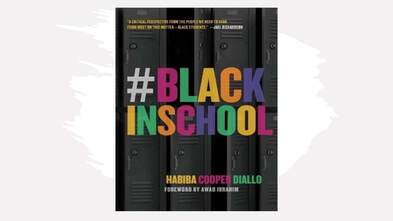
The prevalence of anti-Black racism and its many faces, from racial profiling to police brutality, in North America is indisputable. How do we stop racist ideas and violence if the very foundation of our society is built upon white supremacy? How do we end systemic racism if the majority do not experience it or question its existence? Do our schools instill children with the ideals of equality and tolerance, or do they reinforce differences and teach children of colour that they don’t belong?
#BlackInSchool is Habiba Cooper-Diallo’s high school journal, in which she documents, processes, and resists the systemic racism, microaggressions, stereotypes, and outright racism she experienced in Canada’s education system.
Powerful and eye-opening, Cooper Diallo illustrates how our schools reinforce rather than erode racism: the handcuffing and frisking of students of colour by police at school, one-dimensional, tokenistic curricula of Black people, and the constant barrage of overt racism from students and staff alike. She shows how systemic racism works, how it alienates and seeks to destroys a child’s sense of self. She shows how our institutions work to erase the lived experiences of Black youth and tries to erase Black youth themselves. Cooper Diallo’s words will resonate with some, but should shock, appall, and animate a great many more into action towards a society that is truly equitable for all.
#BlackInSchool is Habiba Cooper-Diallo’s high school journal, in which she documents, processes, and resists the systemic racism, microaggressions, stereotypes, and outright racism she experienced in Canada’s education system.
Powerful and eye-opening, Cooper Diallo illustrates how our schools reinforce rather than erode racism: the handcuffing and frisking of students of colour by police at school, one-dimensional, tokenistic curricula of Black people, and the constant barrage of overt racism from students and staff alike. She shows how systemic racism works, how it alienates and seeks to destroys a child’s sense of self. She shows how our institutions work to erase the lived experiences of Black youth and tries to erase Black youth themselves. Cooper Diallo’s words will resonate with some, but should shock, appall, and animate a great many more into action towards a society that is truly equitable for all.
Building School Libraries-One Book at a Time
Calling all student-athletes! If your goal is to play a sport at the college level in the US or Canada, this workshop is for you! This is a 4-session program with topics covering:
-How to apply, prepare your admissions materials, and what colleges look for in a student-athlete.
-NCAA, NAIA, NJCAA, or U Sports (Canada) - Pros and Cons
-The reality of Scholarships and what can they cover?
-Why time management is crucial as a student-athlete cause grades matter.
The workshop facilitator is Alpha Faye. He played varsity soccer throughout his IB Diploma completed at Al Bateen Academy, Abu Dhabi, and continued on to play competitive soccer at Briar Cliff University, Sioux City, Iowa where he earned a Bachelor's Degree in Sports Management. He is currently enrolled in an MBA program at Keiser University, West Palm Beach, Florida.
In addition to soccer he also a variety of other sports including rugby and basketball to name a few.
For registration and fee information, email [email protected] or Whatsapp +221 77 576 0784
This workshop is on-site and also available remotely. The first session is Saturday, July 9, 2023. Time to be determined.
-How to apply, prepare your admissions materials, and what colleges look for in a student-athlete.
-NCAA, NAIA, NJCAA, or U Sports (Canada) - Pros and Cons
-The reality of Scholarships and what can they cover?
-Why time management is crucial as a student-athlete cause grades matter.
The workshop facilitator is Alpha Faye. He played varsity soccer throughout his IB Diploma completed at Al Bateen Academy, Abu Dhabi, and continued on to play competitive soccer at Briar Cliff University, Sioux City, Iowa where he earned a Bachelor's Degree in Sports Management. He is currently enrolled in an MBA program at Keiser University, West Palm Beach, Florida.
In addition to soccer he also a variety of other sports including rugby and basketball to name a few.
For registration and fee information, email [email protected] or Whatsapp +221 77 576 0784
This workshop is on-site and also available remotely. The first session is Saturday, July 9, 2023. Time to be determined.
About the College Club

Helping you study abroad:
At Chez Alpha Books, we understand that choosing a college is a major decision for students and parents. The College Club works to assist students identify a short or long term study opportunity that meets their academic, financial, social and cultural requirements. Students enrolled in The College Club are provided assistance in the following areas including:
- Selecting a university
- Completing the application
- Assistance with the personal statement
- Submission of required documents and application follow up
- Assistance with completion of visa documents and preparation for visa interview
- Preparation to transition abroad and pre-departure briefing
- Cross Cultural information to best understand the new environment
Follow up and ongoing support:
The College Club program assists students learn more about university and college programs in the US, UAE, UK, Canada, Malaysia, UAE and worldwide as we believe a great study opportunity is waiting for students in all corners of the world!
The Chez Alpha team brings extensive international education experience to this program and are experienced working with students and their family throughout this educational journey.
We work with students in Senegal and worldwide. For more information whatsapp +221775760784 or email [email protected]
At Chez Alpha Books, we understand that choosing a college is a major decision for students and parents. The College Club works to assist students identify a short or long term study opportunity that meets their academic, financial, social and cultural requirements. Students enrolled in The College Club are provided assistance in the following areas including:
- Selecting a university
- Completing the application
- Assistance with the personal statement
- Submission of required documents and application follow up
- Assistance with completion of visa documents and preparation for visa interview
- Preparation to transition abroad and pre-departure briefing
- Cross Cultural information to best understand the new environment
Follow up and ongoing support:
The College Club program assists students learn more about university and college programs in the US, UAE, UK, Canada, Malaysia, UAE and worldwide as we believe a great study opportunity is waiting for students in all corners of the world!
The Chez Alpha team brings extensive international education experience to this program and are experienced working with students and their family throughout this educational journey.
We work with students in Senegal and worldwide. For more information whatsapp +221775760784 or email [email protected]
Living and Learning
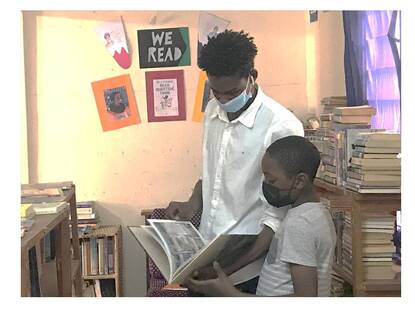
Student and teacher. At the end of every English class, this young student leaves with a book. At Chez Alpha Books, we love to integrate reading with learning English. Our lending library has been developed via donations. Students from all ages have the opportunity to borrow from a diverse selection of books available. This young student arrives every Saturday ready to learn and leaves ready to read more. For more information on English classes for students contact [email protected]
Students can register for ELS English language programs in the US or Canada at Chez Alpha Books. ELS has a proven track record with 1.2 million students from over 143 countries who have studied at an ELS center. In addition, the ELS pathway program allows students admissions into one of their partner universities without the TOEFL or SAT.Visit ELS frequently asked questions (FAQ) page to get some of your questions answered: http://bit.ly/37yXYhP After you review the FAQS, apply at Chez Alpha Books or whatsapp us at 775760784 to get more information.
Students can register for ELS English language programs in the US or Canada at Chez Alpha Books. ELS has a proven track record with 1.2 million students from over 143 countries who have studied at an ELS center. In addition, the ELS pathway program allows students admissions into one of their partner universities without the TOEFL or SAT.Visit ELS frequently asked questions (FAQ) page to get some of your questions answered: http://bit.ly/37yXYhP After you review the FAQS, apply at Chez Alpha Books or whatsapp us at 775760784 to get more information.
TEST PREP at Chez Alpha Books



